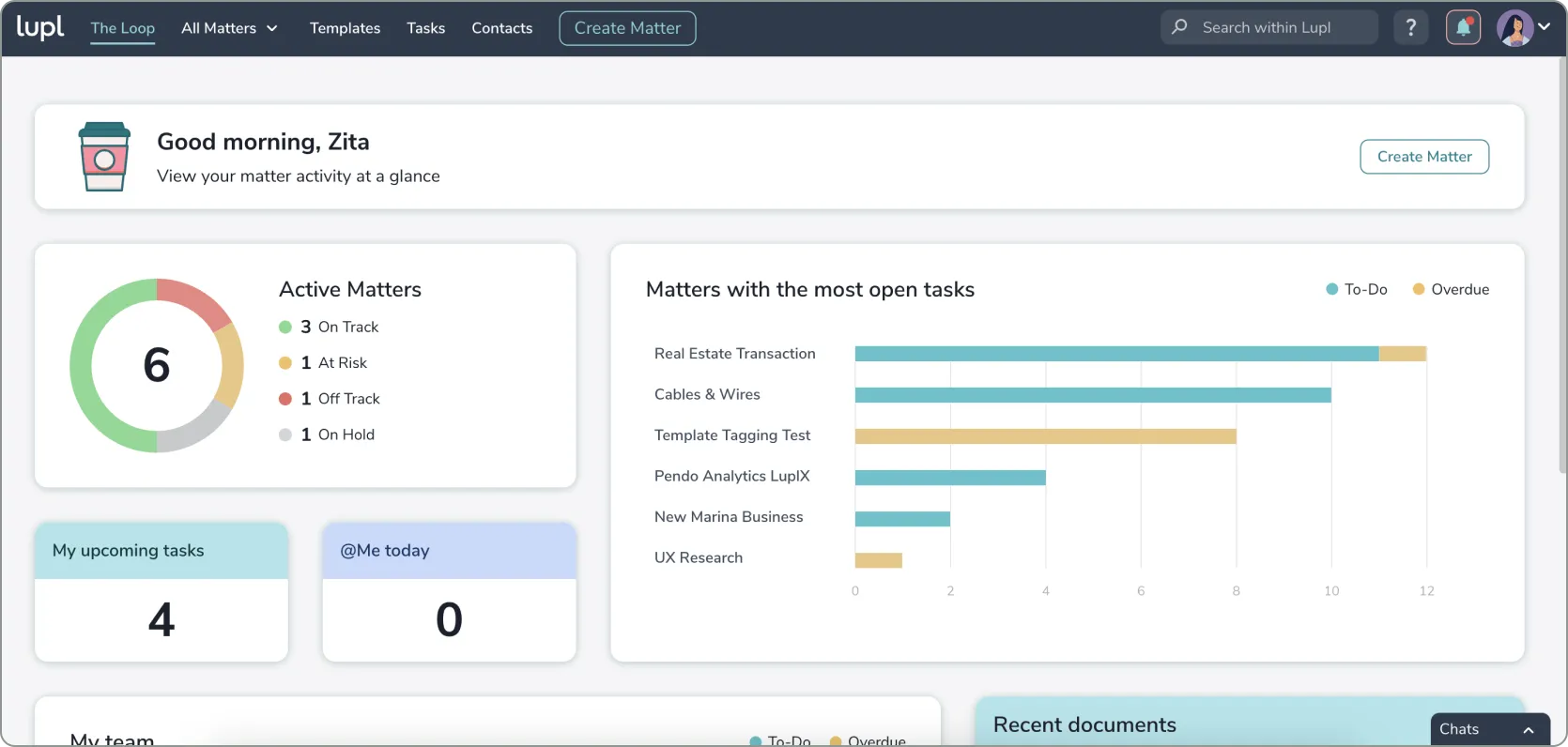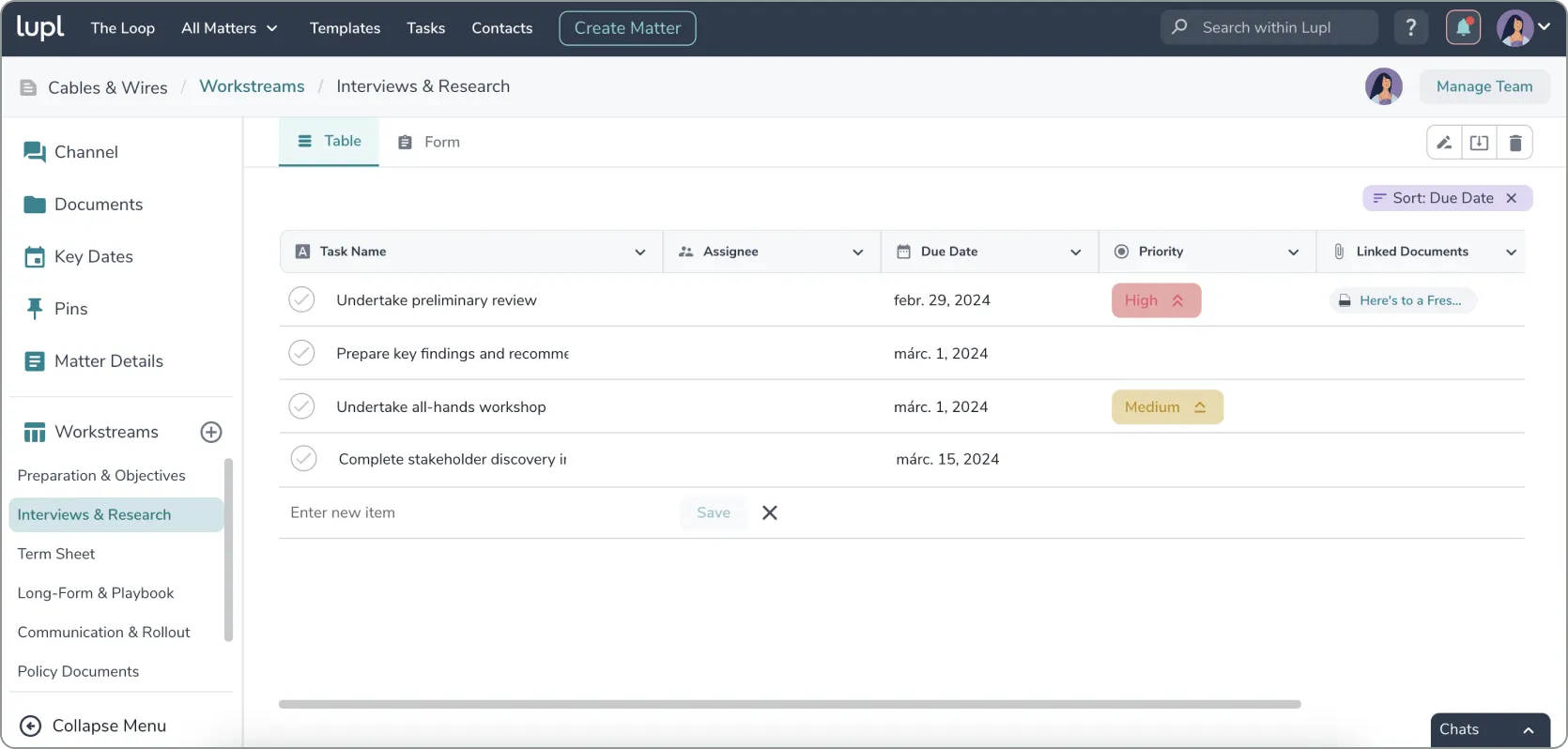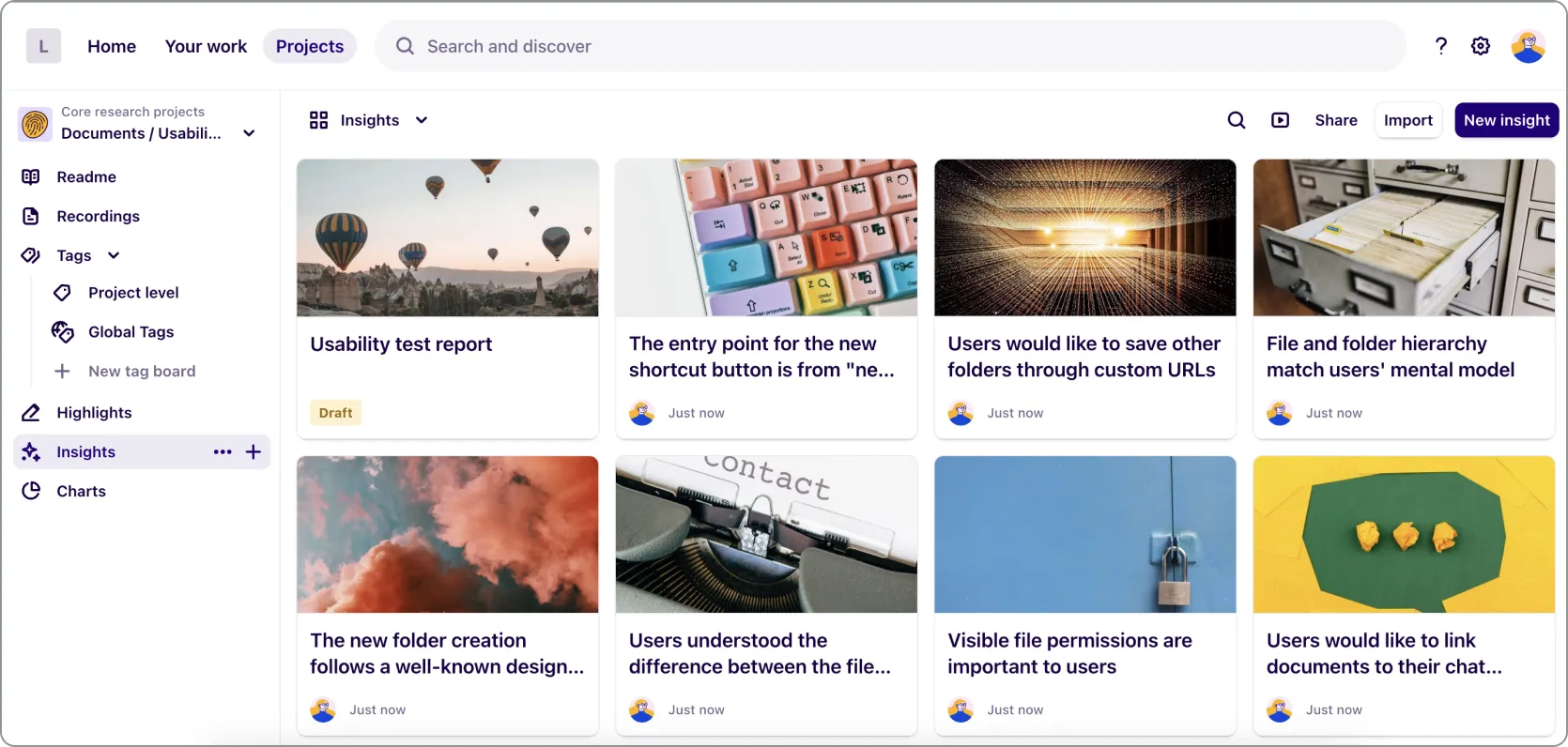Goal
As the Lupl’s user base grew, the team identified a need for a more structured UX research process. Our goal was to establish a sustainable research framework from the ground up, that could inform product development and enhance the user experience.
Challenge
Our initial challenge was understanding the legal industry's intricacies, including technical limitations and confidentiality protocols. Reaching busy lawyers presented another challenge. We needed creative recruitment strategies to tap into both existing and potential user groups.
Outcome
We established a standardized research process with high-quality outcomes. We leveraged existing data and familiarized ourselves with the product through direct use and competitor research. We developed user recruitment methods, including direct outreach and external panels.





